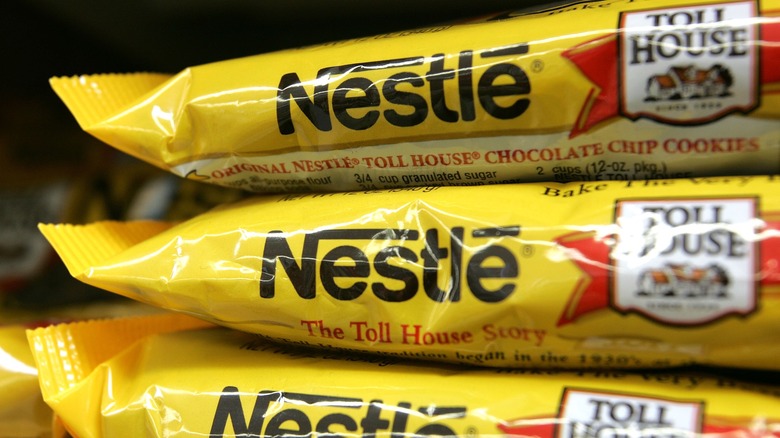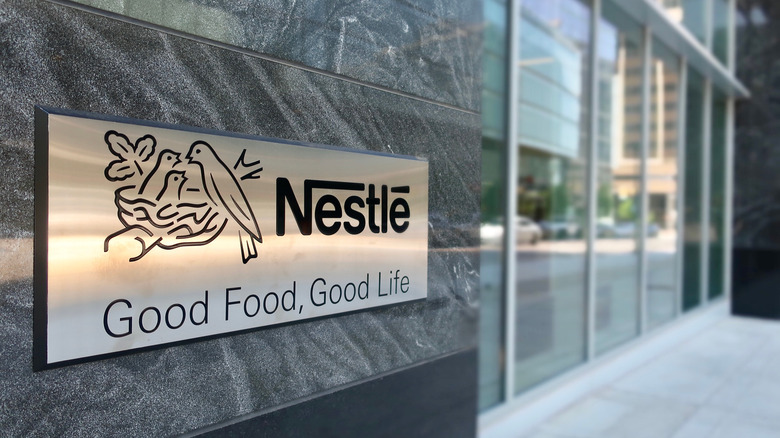Nestlé Stays Committed To Increasing Prices In 2023
No relief seems to be in sight regarding food prices as the world's largest food company announces its plans to raise prices in 2023. This comes on top of an increase in prices in 2022 by Nestlé, which on average increased its prices by 10.1% in 2022 (per The Wall Street Journal). Headquartered in Switzerland, Nestlé makes everything from frozen food to coffee and baby food to candy.
Prior to that price increase in 2022, Nestlé CEO Mark Schneider said inflation was affecting the international company's operations and that it would need to assess its prices and take other actions in response. Some of the measures Nestlé took were to increase prices and cut costs by eliminating some products while focusing on ones that were performing better. Nestlé's decision to address its prices and production lines came after inflation rose following supply chain issues, labor shortages, and the war in Ukraine, which have continued to affect the cost of raw materials and access to materials.
After increasing its prices in 2022, sales at Nestlé declined by 2.6% during the last three months of the year. As Nestlé continues to navigate the economic challenges present in 2023, it warns that the price of staple goods will only continue to rise, even as Richmond Federal Reserve President Thomas Barkin announced on February 17, 2022, that the number of jobs was increasing and retail sales were doing well.
Not all products will be affected
After its profits took a hit in 2022, Nestlé said it will increase prices on items it produces, but not all will be affected at the same rate (per CNN). Instead, the company will focus on products where the cost of inflation has most strongly been felt. No details have been released yet on which products are anticipated to increase in cost.
What Nestlé has to decide (along with other food manufacturers) is how much it can charge before customers will stop buying. Shoppers aren't the only ones pushing back against manufacturers. Walmart and other grocers are also protesting the rising prices with Walmart threatening to promote its value brands if the cost situation didn't improve. While some raw materials have seen their prices decline after rising in 2022, such as energy, dairy products, and grains, they still cost more than a few years ago, and as a result, continue to impact the production of items by Nestlé and other companies, such as Unilever and Procter & Gamble.
"Like all the consumers around the world, we've been hit by inflation and now we're trying to repair the damage that has been done," Nestlé Chief Executive Mark Schneider said (via The Wall Street Journal). He went on to say that the company has been in discussions with retailers on how to handle rising costs. The Wall Street Journal reports that looking ahead to the rest of the year, Nestlé is predicting its sales will grow by 6% to 8%, which is attributable to higher prices for its products.

